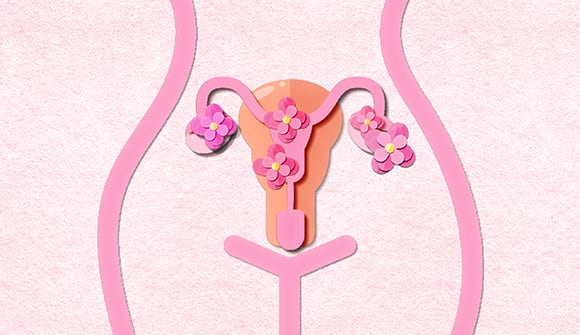Positive pregnancy test?
Here’s what to expect at your first prenatal appointment.
Article Date:

You've taken a home pregnancy test and it came back positive. Now what? The next step is to call your OB/GYN to schedule your first of many prenatal appointments for your doctor to monitor your baby's growth and your health.
What to expect at your first prenatal appointment
"This initial appointment helps ensure we can get an accurate due date calculation," said Anita Patel, MD, an obstetrician at Beaches OBGYN who delivers at Baptist Medical Center Beaches. "It also gives us an opportunity to begin addressing medical risk factors to the pregnancy, get baseline measurements of weight, and conduct any labs needed for women with certain medical conditions, like diabetes and thyroid disorder."
Many women have their first prenatal appointment between the seventh and eighth weeks of pregnancy, when the viability of the pregnancy can be confirmed on an ultrasound (meaning that little peanut shape is visible and the doctor can find a heartbeat). Also at that appointment, your doctor will talk to you about what to do and what to expect going forward. The OB will usually share resources on which over-the-counter medications are (and aren't) safe to take while pregnant, as well as foods to avoid over the next nine months.
"During your first appointment, we'll take a detailed medical history to determine any risk factors that may affect your pregnancy," said Dr. Patel. "We will review prior pregnancy history and outcomes, discuss recent travel and occupational hazards, make medication adjustments if needed, and evaluate and address mental health issues. We'll also discuss options for genetic screening, such as the first-trimester screen or cell-free DNA blood tests, and go over timing for future prenatal visits, ultrasounds and testing. Lastly, we will perform a full physical exam and, if you're due for a new one, collect a pap smear and screen for pelvic infections."
Why prenatal care matters
It's important to go to each of your prenatal checkups because these visits can reassure you all is going well and help find treatable health issues early, in both you and your baby.
"Regular prenatal care improves pregnancy outcomes for both the mother and her infant. This is especially important for women who have medical conditions that need to be closely monitored or a history of complications in a prior pregnancy that may occur again," said Dr. Patel.
If you're nervous, worried or finding excuses to not go to your prenatal visits, you can:
- Talk through your feelings with a friend who's already a parent.
- Share your concerns about checkups with your doctor. He or she may have tips to ease stress.
- Think about your baby: checkups are the best way to give him or her a healthy start in life.
"Patients often feel nervous at the first prenatal visit, which is when we confirm the pregnancy, because viability of the pregnancy is uncertain until then and risk of miscarriage, even in a healthy person, is about 20%," Dr. Patel explained. "However, seeking early care allows patients to talk with their provider, address these concerns and get early opportunities for intervention to improve the pregnancy outcome."
Schedule your prenatal appointment
When you find out you're expecting a baby, you probably have a lot of questions. Baptist Health is here for you every step of the way. Visit baptistjax.com/baby to find a doctor, browse classes, get acquainted with Baptist Health's labor and delivery suites, and more.



